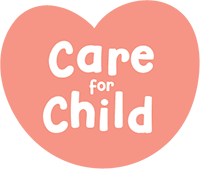What is Postpartum Care?
Postpartum care refers to the medical, emotional, and social support provided to new mothers after childbirth. It is designed to help women recover from the physical and emotional stresses of pregnancy and delivery and to adjust to the demands of caring for a newborn baby. There are even many baby and mom care brands in the market that are also helping women with postpartum care after birth or postpartum care after a c-section. One such prominent brand is Superbottoms which specializes in eco-friendly reusable cloth diapers and other baby care products. In addition to providing high-quality and sustainable baby care products, Superbottoms is committed to supporting new mothers through the postpartum period. Superbottoms offers a range of resources and support for postpartum care for mother, including a community of other moms going through similar experiences, online resources and information about postpartum care, and personalized support from trained professionals. By providing high-quality, sustainable baby care products and comprehensive postpartum support, Superbottoms is helping women navigate the challenges of new motherhood and take care of themselves and their babies.5 Tips for Postpartum Care for Mother
Adjusting to daily life after the birth of a child is difficult, especially if you are a new mother. While caring for your baby is essential, you must also care for yourself. Here are the top 5 tips for postpartum care for a mother and postpartum care for baby.- Get Enough Sleep
- Take a Healthy Diet
- Be Gentle With Your Breasts
- Light Exercises
- Seek Help
3 Tips For Postpartum Care After C-Section
Here are three tips for postpartum care after a C-section:- Take time to rest and recover
- Manage pain and discomfort
- Seek support from others
Conclusion
In conclusion, prioritizing postpartum care is essential for a healthy and smooth recovery process after giving birth. Here are five important tips to consider for postpartum care. First, focus on postpartum care for mother, including rest, proper nutrition, and staying hydrated. Second, seek professional guidance for postpartum care, especially after a c-section, to ensure proper wound healing and pain management. Third, pay attention to postpartum mental health by seeking support and talking openly about your emotions. Fourth, establish a support system and lean on loved ones for assistance with daily tasks and childcare. Lastly, prioritize postpartum care for the baby, including regular pediatric check-ups, proper feeding, and establishing a nurturing environment. By following these postpartum care tips, both mother and baby can experience a healthy and fulfilling recovery process, setting the stage for a positive and joyful postpartum period.Important Note From Care For Child Team:-
Greetings, dear parents and parents-to-be! The journey of pregnancy and parenting can be made smoother when you have access to the collective wisdom of generations and parents who have experienced it all. SuperBottoms presents "Care For Child," a comprehensive platform designed to cater to all your queries and knowledge needs related to pregnancy and parenting. We aim to provide a convenient one-stop destination where you can find valuable information and guidance on your journey towards parenthood.Frequently Asked Questions
Q1: What is postpartum care, and why is it important?
A1: Postpartum care refers to the medical and emotional support provided to mothers after giving birth. It is crucial because the body undergoes significant changes during pregnancy and childbirth, and proper care promotes physical healing, emotional well-being, and a smooth transition into motherhood.
Q2: What are some important postpartum care tips for mothers?
A2: Some essential postpartum care tips for mothers include getting sufficient rest, maintaining a healthy diet, staying hydrated, practicing gentle exercises, and seeking emotional support. These actions promote healing, replenish energy levels, and support overall well-being during the postpartum period.
Q3: How does postpartum care differ after a C-section?
A3: Postpartum care after a C-section involves specific considerations for wound healing and pain management. It may include proper incision care, pain medication, support in getting up and moving, and guidance on gradually returning to normal activities. Consulting with healthcare professionals is crucial for personalized care after a C-section.
Q4: What are some postpartum care tips for promoting maternal mental health?
A4: To support maternal mental health, it is important to seek emotional support from loved ones, join support groups, communicate openly about feelings, practice self-care activities, and consult with healthcare providers if experiencing signs of postpartum depression or anxiety.
Q5: How can I establish a support system for postpartum care?
A5: Establishing a support system involves reaching out to family, friends, or postpartum support groups for assistance with daily tasks, childcare, or emotional support. Communicate your needs and allow others to help you during this important time.
